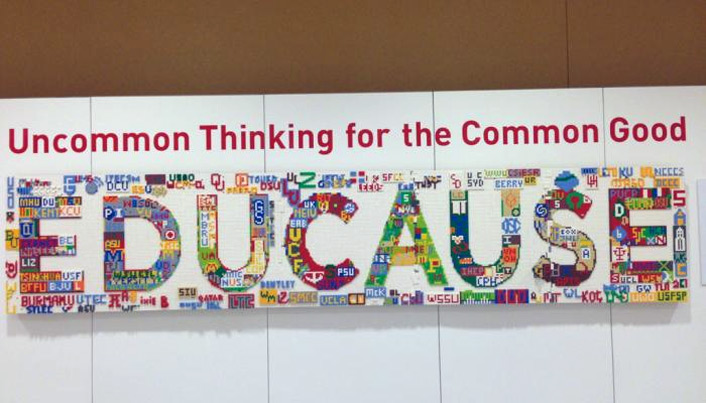
As we reported in this blog in September, EDUCAUSE has awarded iPASS grants to 26 institutions.
iPASS stands for Integrated Planning and Advising for Student Success. There’s a lot behind the five-letter acronym and the name it stands for – and it means much more, for the students and for the institutions that will benefit from the grants, than just “passing” – just getting by.
This week, representatives from iPASS grantee institutions gathered for the first time at a convening preceding the EDUCAUSE Annual Conference to kick off their work.
At the convening, they learned about one another’s programs (see abstracts here), shared their excitement and anticipated challenges, and heard from those who will provide support to them over the next three years: rpkGROUP for help with business models for sustaining the new applications, EDUCAUSE and Achieving the Dream for technical assistance and implementation support, and the Community College Research Center (CCRC) at Teachers College of Columbia University, for the structure of the evaluation that will allow lessons to be drawn from their progress. They also took part in “Change Essentials,” a daylong program on leading change from Kotter International, which is based on Dr. John Kotter’s decades of research into the steps that enable organizations of all kinds to succeed in making substantive operational transitions.
Why iPASS, and why now?
Readers of this blog are well aware that current IT capacities make it possible for colleges and universities to offer better, more timely, and more usefuls service to their students than was the case even a decade ago. Technologies that institutions install and manage let their students know where they’ve been and where they’re going. Students can review online the course catalogues that apply to them, register for courses, review courses they’ve taken and grades they’ve earned, see where they stand on the pathway toward a degree, be aware of the progress they’re making in current courses, get reminders of approaching deadlines, and connect with advisors, faculty, tutors, and counselors.
Using “early alert” applications, students – and their professors and advisors – may even be able to determine that they’re at risk as soon as they hit trouble in a course, so that attention can be directed to the problem and so the student, with help from a faculty member, tutor, or adviser, can get back on track.
Solving tech integration issues
But along with this array of capabilities come difficulties and complexities. The applications that underlie these functions have developed separately, have often been installed at different times, and in most instances operate independently of one another, with different interfaces and log-ins. That poses a challenge to institutions. How can they ensure that all of these potentially supportive capabilities achieve their fullest possible usefulness for students – and for those who teach and advise them? A related problem: staff and faculty members most closely engaged with supporting students on their pathways may not be aware of the new capacities, and may continue working as they had before these functions were available.
Progressive student advising and support
In 2013, the Bill & Melinda Gates Foundation launched a program intended to help institutions that were most engaged in addressing these challenges. Nineteen institutions received funding to deploy and integrate these applications, with interesting lessons for the field that have been gleaned both by the CCRC and by EDUCAUSE’s Center for Analysis and Research (ECAR). (We’ve collected those publications under “Resources” on this page.) Among the conclusions of the research: it was time to begin moving beyond the challenges of launching applications to working on the underlying culture change needed in order for technologies truly to transform the process of student advising and support. With iPASS, that new focus is now getting the attention it needs from 26 committed and engaged institutions.
